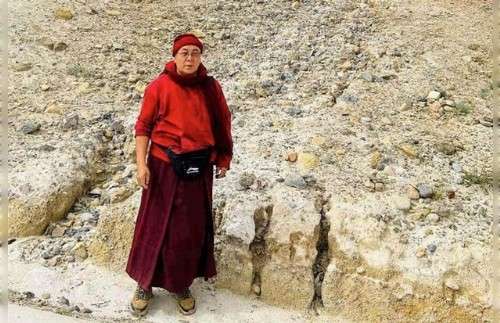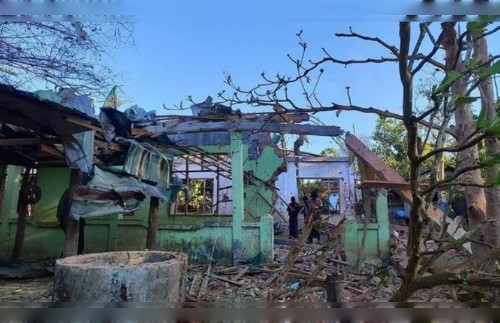Bangri Rinpoche, manager and teacher at an orphanage in Lhasa, had served over 20 years in prison on a charge of ‘separatism.’

A Tibetan school teacher jailed for over 20 years on a charge of separatism was due to be freed from prison last week after completing his sentence, but nothing has been heard of his release, prompting concerns for his safety and health, a Tibetan rights group said on Sunday.
Bangri Rinpoche, a Tibetan religious teacher also known as Jigme Tenzin Nyima, was handed a life sentence in a trial held on Sept. 26, 2000 that was commuted to a 19-year term on July 31, 2003, the Dharamsala, India-based Tibetan Centre for Human Rights Watch said on August 1.
His term was due to end on July 31, but nothing has been heard of his release, Tenzin Dawa—a TCHRD researcher—told RFA on Monday.
“We all know that Bangri Rinpoche has spent 22 years of his life in prison, and even though he has completed his prison term we don’t know whether he has been released or not, or anything about his current health conditions,” Dawa said.
“Since we haven’t heard anything about his release, we are very concerned right now” Dawa said, adding, “It is a well-known fact that Tibetan prisoners are treated inhumanely inside Chinese prisons.”
“The Chinese government should immediately clarify [Bangri Rinpoche’s] status, whereabouts, and well-being,” he said.
Manager of an orphanage and school in Tibet’s capital Lhasa that gave instruction in the Tibetan language, Chinese language, English language, and mathematics, Bangri Rinpoche was arrested with his wife Nyima Choedron in August 1999 in connection with an alleged plot by a worker at the school to raise the banned Tibetan national flag in the city’s main square and then blow himself up with explosives.
Choedron’s ten-year sentence was later commuted, and she was released in February 2006, TCHRD said.
The orphanage was closed almost immediately following their arrest.
Formerly an independent nation, Tibet was invaded and incorporated into China by force 70 years ago.
Language rights have become a particular focus for Tibetan efforts to assert national identity in recent years, with informally organized language courses in the monasteries and towns typically deemed “illegal associations” and teachers subject to detention and arrest, sources say.
Reported by Lobsang Gelek for RFA’s Tibetan Service. Translated by Tenzin Dickyi. Written in English by Richard Finney.
Copyright © 1998-2020, RFA. Used with the permission of Radio Free Asia, 2025 M St. NW, Suite 300, Washington DC 20036. https://www.rfa.org


















